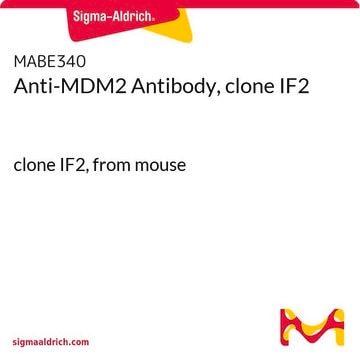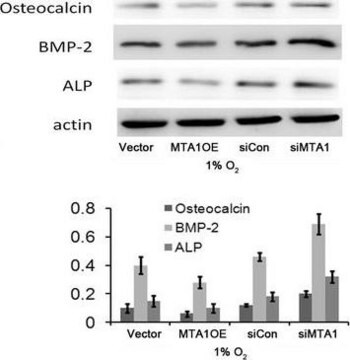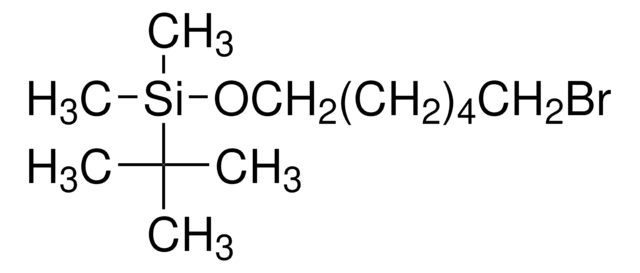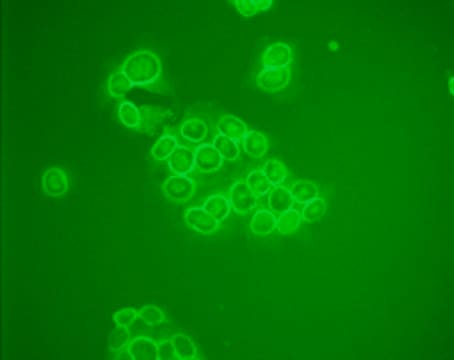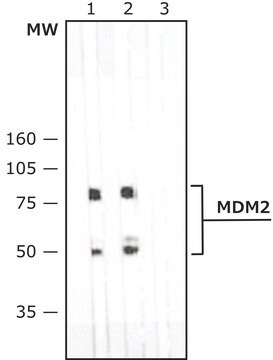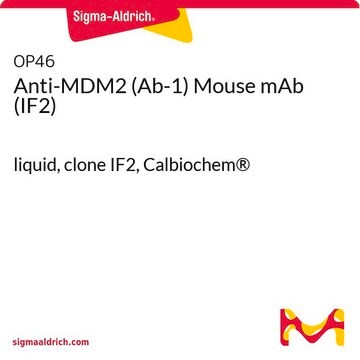MABE281
Anti-MDM2 Antibody, clone 2A10
clone 2A10, from mouse
Synonyme(s) :
E3 ubiquitin-protein ligase Mdm2, Double minute 2 protein, Hdm2, Oncoprotein Mdm2, p53-binding protein Mdm2
About This Item
Produits recommandés
Source biologique
mouse
Niveau de qualité
Forme d'anticorps
culture supernatant
Type de produit anticorps
primary antibodies
Clone
2A10, monoclonal
Espèces réactives
human
Technique(s)
immunoprecipitation (IP): suitable
western blot: suitable
Isotype
IgG2aκ
Numéro d'accès NCBI
Numéro d'accès UniProt
Conditions d'expédition
wet ice
Modification post-traductionnelle de la cible
unmodified
Informations sur le gène
human ... MDM2(4193)
Description générale
Application
Qualité
Western Blot Analysis: 0.5 µg/mL of this antibody detected MDM2 on 10 µg of A-549 cell lysate.
Description de la cible
Forme physique
Remarque sur l'analyse
A-549 cell lysate
Autres remarques
Vous ne trouvez pas le bon produit ?
Essayez notre Outil de sélection de produits.
En option
Code de la classe de stockage
12 - Non Combustible Liquids
Classe de danger pour l'eau (WGK)
WGK 1
Point d'éclair (°F)
Not applicable
Point d'éclair (°C)
Not applicable
Certificats d'analyse (COA)
Recherchez un Certificats d'analyse (COA) en saisissant le numéro de lot du produit. Les numéros de lot figurent sur l'étiquette du produit après les mots "Lot" ou "Batch".
Déjà en possession de ce produit ?
Retrouvez la documentation relative aux produits que vous avez récemment achetés dans la Bibliothèque de documents.
Notre équipe de scientifiques dispose d'une expérience dans tous les secteurs de la recherche, notamment en sciences de la vie, science des matériaux, synthèse chimique, chromatographie, analyse et dans de nombreux autres domaines..
Contacter notre Service technique